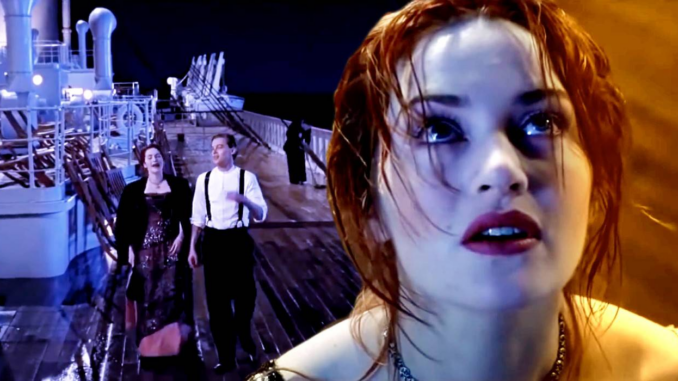
With film festival season well underway, reviews have been dropping for some of the hottest-anticipated movies of the next 12 months.
Emma Stone is already being tipped for an Oscar thanks to Poor Things while Emerald Fennell’s Promising Young Woman follow-up divided critics – and Kate Winslet’s latest effort has done exactly the same thing.
The Titanic star takes the lead role in Lee, a biopic about Vogue model turned war photographer Lee Miller.

The movie is based on Antony Penrose’s book about his extraordinary mother and follows her as she reports from behind the battlefields of World War II. Miller was known for photographing the London Blitz and the Liberation of Paris, and was among the first to enter the Buchenwald and Dachau concentration camps with Allied Forces.
While some reviewers have labeled the role as Kate’s “richest” yet, others have been left feeling decidedly let down by the ambitious film, which premiered at the Toronto International Film Festival this week.
Here’s what critics have had to say…
BBC Culture (4/5)
“In a lifetime of well-chosen roles, this may be [Kate Winslet’s] richest. She gives us a restless, fierce, independent woman who found her voice as a witness to war, and paid the psychological price.
“To be direct, Winslet brought on the great cinematographer Ellen Kuras, who worked with her on Eternal Sunshine of the Spotless Mind, and who shaped the film with supreme authority and intelligent choices at every turn.”
The Daily Beast
“It’s surprising to discover that Lee adheres to a conventional aesthetic template, full of warm light coming through living room windows, dusty haze filling the war-torn air, and plaintive piano and poignant orchestral compositions embellishing the stately action.
“All things considered, it’s a handsome film, but only in the blandest way; there’s no trace of uniqueness or daring, this despite the fact that its protagonist was defined by those very traits.”
The Hollywood Reporter

“[Lee] takes photographs of hosiery drying on a line in a woman’s barrack as well as a striking picture of a young girl tortured by Nazis. It’s when Lee looks at that last image that a torrent of memories come back to her. Winslet wears the weight of that emotion in her face, which quivers as her character processes unseen and unknown (to us) traumas.
“It’s also both in that moment and in a major revelation tucked into the last act that Lee’s structure, although effective, seems incongruous with its subject. Miller spent her life searching. It was a disordered quest that also lent her photographs a profound clarity. In Lee’s attempt to make Miller’s life more legible, it irons out the contradictions and tidies up a mess that would have made for a spikier, more interesting film.”
The Guardian (2/5)
“As convincing as Winslet might be, Lee does mark something of a backwards move. After her excellent, award-winning work as a controversially accented cop in Mare of Easttown, she’s been returning to similarly earthy roots.
“She was thoughtful and understated in the otherwise middling Ammonite before a raw, naturalistic performance in the grueling Channel 4 drama I Am Ruth.
“It’s been gratifying to watch a star of her stature scale back and choose challenge over comfort but Lee feels closer to the kind of film Winslet would have picked in the heyday of her Oscarbait era […] There’s nothing new here for her or for us.”
Screen Daily

“Perhaps not surprisingly, the film looks tremendous, with the sunny possibilities of the early scenes gradually replaced by an oppressively sober color palette of khaki, beige and gun-smoke gray. And while Miller’s role, as an observer who bears witness to some of the worst atrocities of war, is arguably passive rather than active, her friendship with fellow photographer David E. Scherman (Andy Samberg) adds emotional weight to the story.”
The Art Newspaper
“Whether taking intimate shots of Women’s Auxiliary knickers drying in a barracks, or the punishment of a femme tondue, Miller’s female gaze is a window into the unseen previously—but this is personalized and narratively streamlined, always circling back to a private trauma heavily hinted at throughout the movie by Winslet’s searching gaze and an over-utilized sombre score by Alexandre Desplat, before a late monologue finally reveals Miller’s own childhood abuse.
“With Winslet’s embittered delivery of a line about how “they always get away with it”, the scene becomes her #MeToo moment and Oscar clip, filmed in a single-take close-up—but it feels paradoxical and insufficient, this decision to pay tribute to a woman who dared to pick up a camera by putting her back in front of the lens.”
